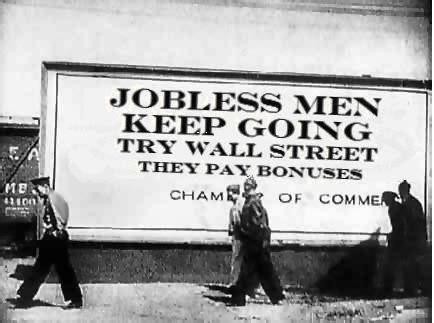The great thing about being in technology is that it is a growing field. There are tons of jobs, and companies are always complaining about how hard it is to find talent.
That is until it isn’t.
It isn’t clear what will happen during this pandemic, but the layoffs and hiring slowdowns or pauses have started.
Many developers have never known a time when companies were not clamoring for their services and bidding against each other.
Having my startup go bust in the dot-com bubble bursting of 2000-2001 and having seen what employment options were like in 2008-2009, I thought I could give some advice to those of you who may be in brand new territory.
If you find yourself unemployed during a bust, you will need to change your tactics. You may be used to an employee’s market, but you are entering an employer’s market. Companies will suddenly find many options for their roles—very qualified, even overqualified, folks who are willing to take a lower salary for their positions. Jobs you wouldn’t have considered previously are no longer returning your e-mails. They can find people better than you cheaper.
Even if you currently have a good job, the security of that role may not be what you expected. Be prepared.
Save your money
If you live somewhere expensive, the rent and other prices are likely to go down more slowly than salaries. You need to start cutting your expenses and build up a cash reserve.
Hopefully, you already have a few months of money put aside somewhere other than the stock market. In a crash, selling your investments in the dip is the last resort. If you don’t have that cash reserve, start building it now.
Stop unnecessary purchases: buy groceries instead of door-dashing meals, take public transportation instead of Lyft, do your laundry instead of sending it out. This is the way that most people live.
You will be surprised how much money you can save by making a few changes. Once you have your reserve (enough to live on with a reduced, reasonable, lifestyle for a few months), you can go back to your spending patterns, or continue to build your savings (which is smarter). During the previous busts, very good, very senior developers ended up unemployed for many months.
Stay Positive
I left a good job at Microsoft to join a startup in 1999. That startup crashed a few months later. After trying to help the leadership revive it for a few months, I joined a friend in building a new startup. We had some angel money, but I was paying the rent and some of the other bills myself sometimes. We were ready to go out for our first real round of funding in September of 2001.
After 9/11, what was left of the investment and job market completely fell apart. We could not raise money. After a few months of trying to keep things going, I needed to start earning a paycheck again. I was selling my stock to pay the bills, and those shares were now worth half of it they had been before.
I assumed it would be easy to find a job. It always had been.
Jobs were suddenly scarce.
I found myself applying blindly to companies that I would never have considered before. Few replied.
Weeks turned into months. I started to lose faith. Occasionally, I would get an actual interview. But by then, the fire had gone out in my eyes. I was passed over for roles that required way less experience than I had. I had lost my confidence, and it showed in interviews.
Eventually, through a friend, I was able to land a contracting job, back at Microsoft. It was a bit humiliating, but I was happy to be working and earning again.
I later found out that I was one of the last people to get that level of contract. The contracting company realized that it could hire people of my seniority at lower contract rates.
Working again gave me my confidence back. I did well and got converted back into a full-time role. When I did, though, my manager negotiated my salary down. I had to take a serious pay cut. I had no choice, and he knew it. I took the job.
Now, as an employee again, I was on interview loops. I spoke to many good developers who were in the same situation I had just left. They had lost their confidence, just like I had. Their answers to questions were non-committal. They were tentative. They were so used to being rejected that it made it hard to approve them.
If you find yourself in that situation, you need to do your absolute utmost to project a positive aspect and some self-confidence in your discussions with recruiters and employers. Even if you have to fake it. Displaying confidence will make a substantial difference in how you interview.
Some money is better than none
If you get an offer, it may be well for a lot less than you expect. You may need to take it anyway. Some money coming in is better than none. The market will rebound eventually, and salaries will go up again. When that happens, you will be able to find a new role that will pay you appropriately. I left Microsoft for a second time when the market rebounded, and I got an offer for more than my old salary from somewhere else.
If the offer is much, much too low, take it. Keep looking for another role, but now with some security. No one says you have to put every position on your resume.
What you want to do and what you can do
Are you a developer, but a company is open to giving you a job as a tester or program manager? Are you an engineering manager, but a company is interested in talking to you about a product manager role?
If you are finding it hard to find a job doing what you want to do, it may be time for a temporary (or permanent) career change.
I wouldn’t automatically recommend this, though. If you switch into another role, when the market opens up, you may find it hard to go back to your preferred job. The market now sees you as a product manager or tester and may not consider you for a development role (especially if you are in the new position for a while). You may find that you enjoy the new job and want to pursue a new career, which could be a benefit. This situation happened to a few friends of mine during the 2008 crash.
If you decide to take the career-switching role out of necessity, make sure you keep your development chops up: contribute to open source, build apps or sites, whatever keeps your skills up-to-date.
You may be tempted to take a role outside the industry. This should always be the absolute last resort. Even with a strong resume, you may find it hard to get back in if you are in a very different field for a few years.
The sad fact for those who struggle during these periods is that most folks in the field will keep their jobs. When their companies start hiring again, these people will have a strong survivor’s bias. They may not understand the choices you had to make.
Build (and maintain) your network
Keeping up with your friends in the industry is probably going to be your best bet at finding a new role. Your friends can get you past the gatekeepers at the companies and make sure you are seen. They also may have more insight into what roles are open.
At first, it may be difficult to reach out to them. You may be embarrassed about the situation you are in. Get over it.
If you have been in the same company for a long time, or don’t have a big network in your area, start attending meetups or local conferences. Meet developers at other companies. You are likely to meet a lot of other folks in your situation, this is ok. You can form a group to share tips about companies hiring, maybe they may know someone at a company with a role appropriate for you.
Stay in your safe harbor
If you have a good job, with a good salary, keep it. Build your savings because even good companies don’t always survive. If you were considering that it might be time to move on and find a new role, don’t.
Even if you have an offer in hand, when companies hit a rough patch, after freezing hiring, they start rescinding offers. A friend of mine left his steady job during the bust to join another established company. He quit his old job and then the weekend before he started his new one, his offer was rescinded. He was now unemployed. His former company didn’t want him back. They got someone more senior for his role at the same salary.
The Reality
If you have been privileged to not know a time when you were worried about money, this will be scary. Hopefully, you find a new job, and this time will be brief. Many people in the world are not that lucky. They live constantly worrying about how they will pay their rent, or feed their families. When you are on the other side of this, realize how lucky you are and take your new perspective to be a better, more empathetic person. Do your best to help those in need, now that you have an understanding of what their reality is.
It will get better
Economies are cyclical. After the dot-com bust, there was exceptional growth in the tech industry. After the 2008 contraction, the tech sector went back into massive growth mode. If you lose your job and find it hard to get a new one, don’t despair. Things will get better. Until then, just focus on doing what you need to until that happens. Learn from this experience and be ready for the next contraction, because there will be one. Always.
If you don’t lose your job and you are in a position to make hiring decisions, try to be human. If you interview someone who seems to have lost all hope, try to see the person underneath who has had some bad luck. If you were lucky enough not to lose your job, don’t think you are better than those who did. Ask about their choices. Don’t assume that if someone went from being a developer to doing another job that it was a deliberate choice. Understand their story before making a decision.
These are amazingly challenging times for many people. Remember that if you lose your job during this downturn, even if things seem very bleak, you are probably still better off than 95% of the world’s population. If you want to grow your skills while looking for a job, you could build a website for a charity. That will leverage your skills, build your confidence, and do something for others too.
We’ll get through this.


